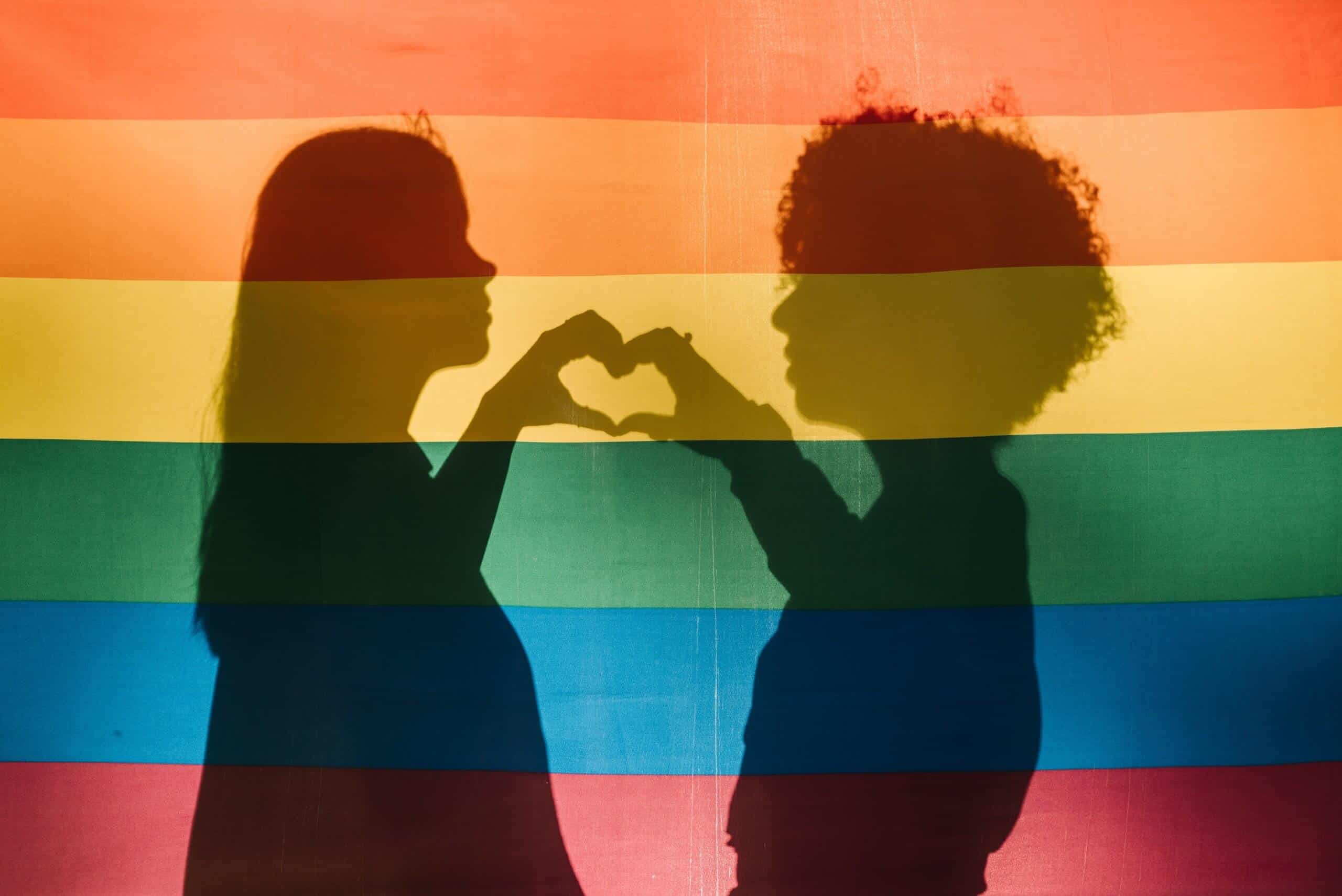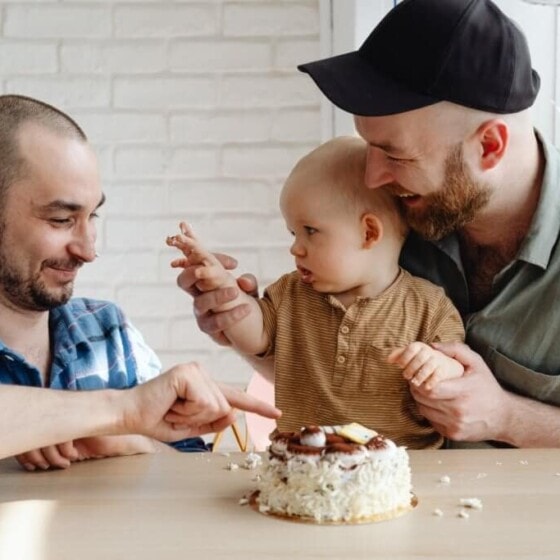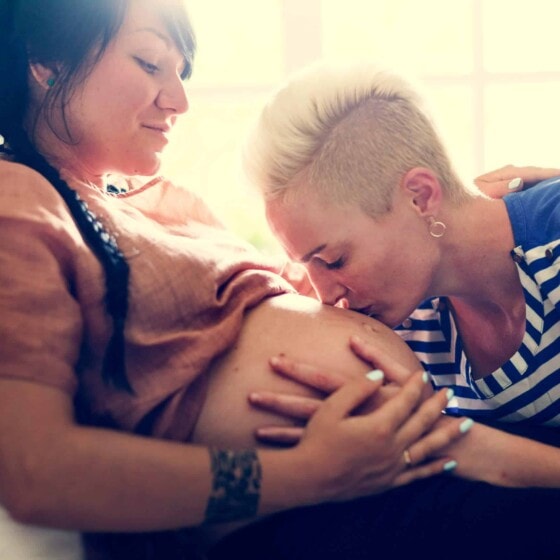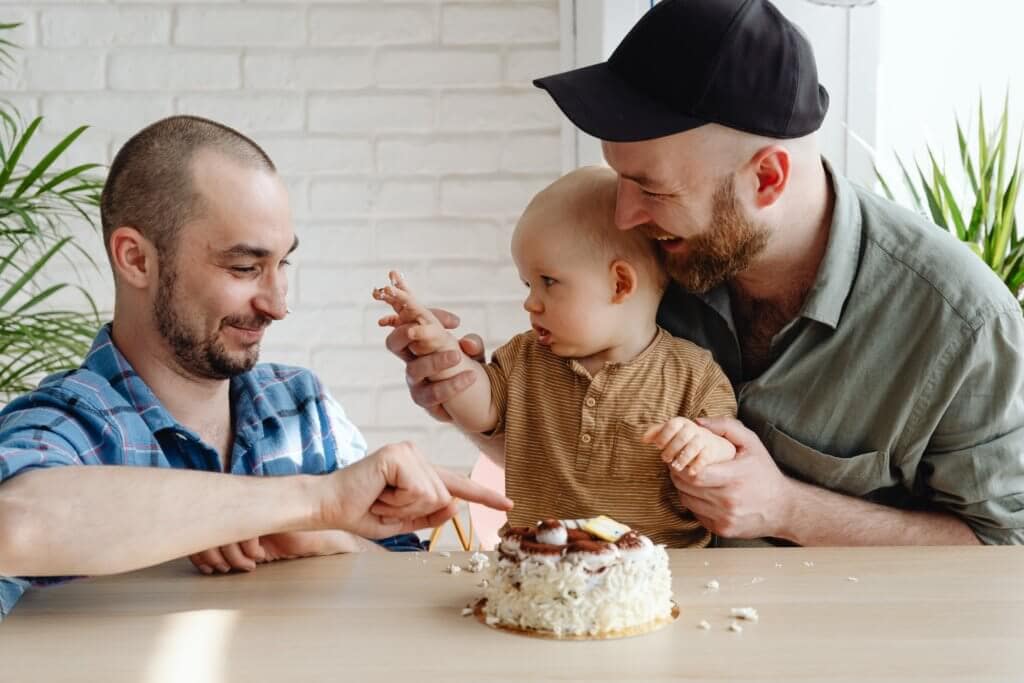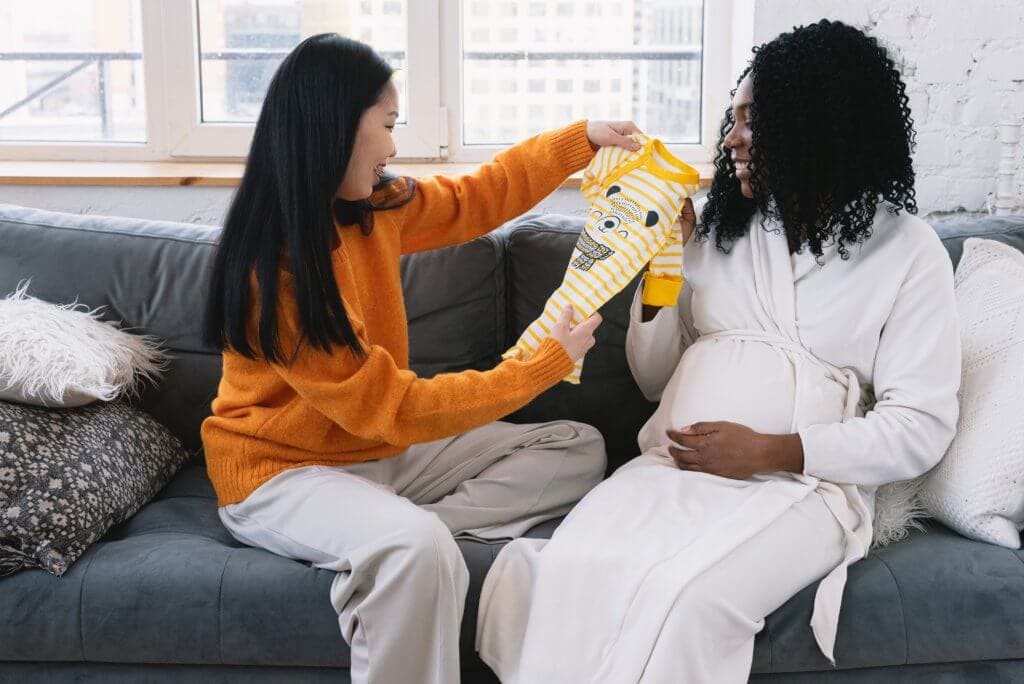Gay men who want a child with a biological link to them can achieve this through surrogacy. One of them will contribute their sperm, which will be used to fertilise a donated egg or eggs, with the resulting embryo then transferred to the surrogate. In most cases, the surrogate will not also be the egg donor, so that the child they’re carrying isn’t their biological offspring.
Some gay couples prefer split insemination, where half of the donated eggs are fertilised using one partner’s sperm and the other half use the other partner’s sperm.

